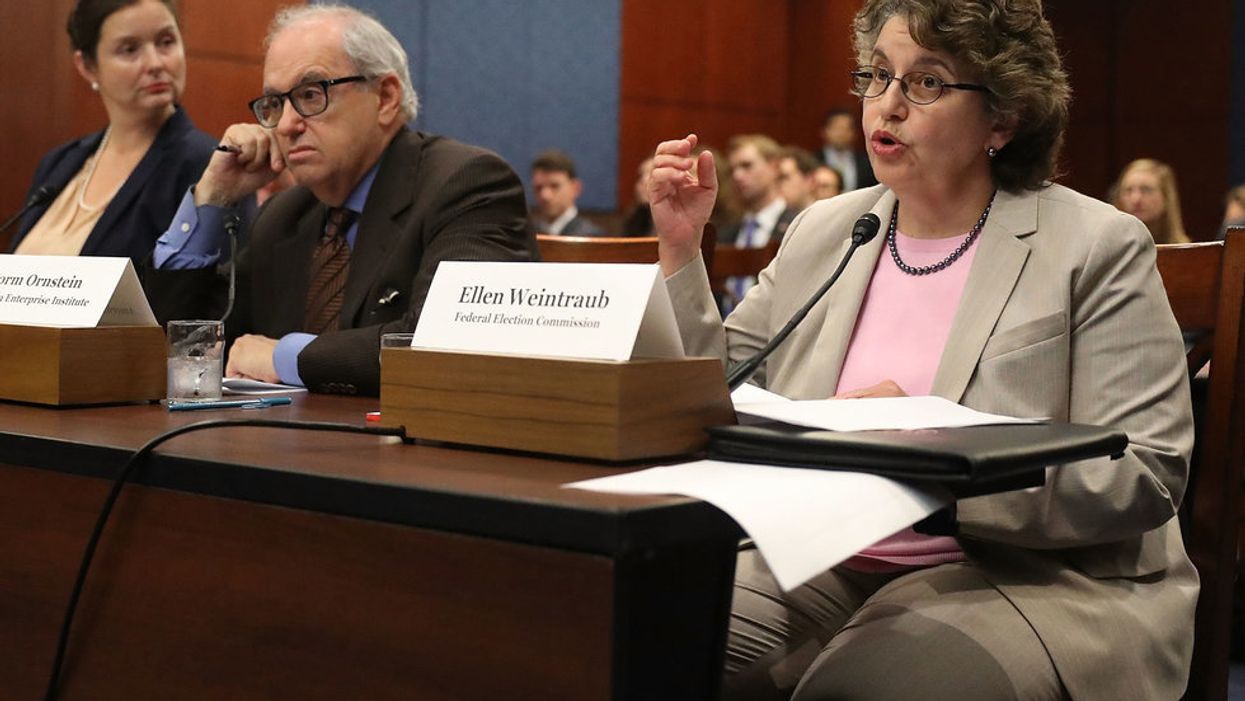The Federal Election Commission has once again punted on establishing rules for identifying who is sponsoring online political advertisements. Thursday marked the fourth consecutive meeting in which the topic fell to the wayside without a clear path forward.
FEC Chairwoman Ellen Weintraub revived debate on the topic in June when she introduced a proposal on how to regulate online political ads. In her proposal, she said the growing threat of misinformation meant that requiring transparency for political ads was "a small but necessary step."
Vice Chairman Matthew Petersen and Commissioner Caroline Hunter put forth their own proposal soon after Weintraub, but the commissioners have failed to find any middle ground. At Thursday's meeting, a decision on the agenda item was pushed off to a later date.
Weintraub's proposal says the funding source should be clearly visible on the face of the ad, with some allowance for abbreviations. But Petersen and Hunter want to allow more flexibility for tiny ads that cannot accommodate these disclaimers due to space.
The commission has being trying to tackle the question of whether and how to disclose the funding of online ads since 2011. Last year, the FEC considered but never voted on a similar measure. It received 314,000 public comments — most of them supportive.
All political committees that advertise online must report their spending and include disclaimers on the ads about the sponsors — just like they would for print, television or radio ads. But the commission has not yet defined the regulations for small Internet ads that may not be able to include full funding disclosures.
The commission has been unable to move forward on how to add these regulations while still allowing political committees to have flexibility as online advertising adapts to changing technologies.
The FEC often finds itself deadlocked by partisan disagreement on issues. Two of the six seats have remained vacant since President Trump took office, so everyone has to be in agreement for any proposal to secure the four votes required for approval. Unanimity is hard to come by, though, because Petersen and Hunter are Republicans, Weintraub is a Democrat and the fourth member, Steven Walther, is an independent who generally sides with the chairwoman.
Weintraub said she had hoped to see the commission reach a consensus on this issue in time for the 2020 election, but due to this stalemate, it doesn't appear that will be possible.
The 2018 midterm campaign saw a 260 percent increase in digital ads from the 2014 midterm. Spending on these ads on Facebook, Twitter, Instagram and other social media sites also jumped, reaching about $900 million. Knowing the funding sources for online political ads would help deter foreign influence in elections, Weintraub said.
"We have tried every single day to see if there was something we could do, some way to move forward, some conversation we could have, and I can't do it alone," Weintraub said to her fellow commissioners at Thursday's meeting. "I don't know where to go from here, but let me assure you that my door remains open if you would like to have a conversation to get this rulemaking done."




















Trump & Hegseth gave Mark Kelly a huge 2028 gift